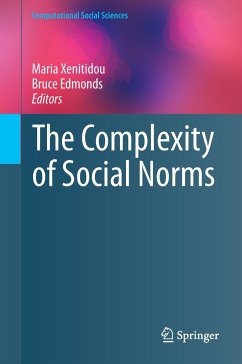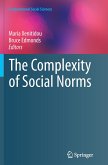This book explores the view that normative behaviour is part of a complex of social mechanisms, processes and narratives that are constantly shifting. From this perspective, norms are not a kind of self-contained social object or fact, but rather an interplay of many things that we label as norms when we 'take a snapshot' of them at a particular instant. Further, this book pursues the hypothesis that considering the dynamic aspects of these phenomena sheds new light on them.
The sort of issues that this perspective opens to exploration include:
Of what is this complex we call a "social norm" composed of?How do new social norms emerge and what kind of circumstances might facilitate such an appearance?How context-specific are the norms and patterns of normative behaviour that arise?How do the cognitive and the social aspects of norms interact over time?How do expectations, beliefs and individual rationality interact with social norm complexes to effect behaviour?How does our social embeddedness relate to social constraint upon behaviour?How might the socio-cognitive complexes that we call norms be usefully researched?
The sort of issues that this perspective opens to exploration include:
Of what is this complex we call a "social norm" composed of?How do new social norms emerge and what kind of circumstances might facilitate such an appearance?How context-specific are the norms and patterns of normative behaviour that arise?How do the cognitive and the social aspects of norms interact over time?How do expectations, beliefs and individual rationality interact with social norm complexes to effect behaviour?How does our social embeddedness relate to social constraint upon behaviour?How might the socio-cognitive complexes that we call norms be usefully researched?








